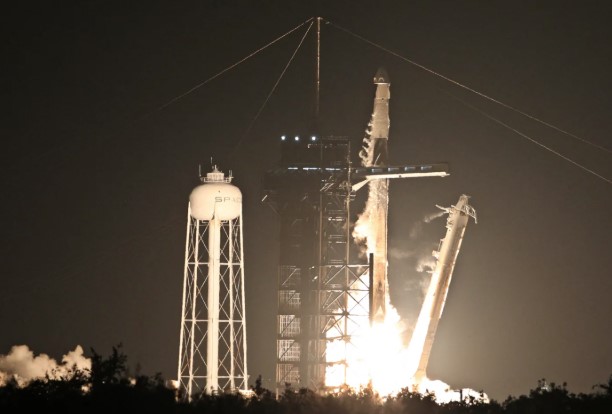The ‘Golden Dome’ Missile Defense Initiative
Elon Musk’s SpaceX, in partnership with Palantir and Anduril, is in a race to win a significant contract to develop a new missile defense system known as the “Golden Dome.” This project, proposed by former President Donald Trump, aims to protect the United States from missile attacks, which the president labeled as one of the most catastrophic threats facing the nation. The three companies have come together with a plan to create a missile defense system that involves deploying hundreds of satellites to track and intercept incoming threats, potentially changing the way the U.S. protects itself from missiles. However, this ambitious plan faces challenges from both the Pentagon and concerns about the model under which it will operate.
The Plan: A Satellite-Based Defense Shield
At the heart of the Golden Dome proposal is a satellite-based system. SpaceX and its partners are looking to create a constellation of 400 to 1,000 satellites that would be capable of detecting and tracking missiles across the globe. This network would serve as the “custody layer,” continuously monitoring threats from space. Alongside these tracking satellites, the system would also include 200 armed satellites, which would be equipped with missiles or lasers to intercept and neutralize incoming missile threats.
One key feature of the proposal is that SpaceX’s segment of the system would not be involved in weaponizing the satellites. Instead, it would focus on detection and tracking, while other companies or agencies might be responsible for adding defensive capabilities. This design could make it easier for SpaceX to deploy and maintain the system, although it raises questions about how effectively the system would be integrated with other defense technologies.
A Subscription-Based Defense Model
One of the most innovative aspects of SpaceX’s bid for the Golden Dome contract is the proposal to operate the system on a subscription service model. In contrast to the traditional method of government purchasing and owning defense systems, instead of directly owning the technology, SpaceX has proposed that the US government pay for access to the Golden Dome. This model could streamline the procurement process by avoiding some of the complex bureaucracy that usually accompanies major defense projects.
However, this approach has sparked concern among some officials. There are worries that using a subscription model could lead to a long-term dependency on private contractors. This could limit the government’s control over updates, pricing, and overall management of the system. If the U.S. government does not own the system, it might not be able to easily modify or upgrade the technology as needed, and could face ongoing costs to keep using the defense network.
The Competition and Stakes of the Project
SpaceX is not the only company competing for the Golden Dome project, which is a very competitive defense contract. More than 180 companies, including major defense contractors like Northrop Grumman, Boeing, and Lockheed Martin, have expressed interest in the contract. In fact, Lockheed Martin has already launched its own dedicated webpage to promote its bid for the missile defense system.
If SpaceX, Palantir, and Anduril secure the contract, it would mark a major victory for Silicon Valley companies in the defense sector. Traditionally, large defense contractors have dominated these types of contracts, but the involvement of SpaceX and its partners signals a shift toward private tech companies playing a more significant role in U.S. defense technology. The involvement of these tech-driven companies could lead to faster innovation and the development of new systems that could outperform traditional defense solutions, especially in large-scale initiatives like the Golden Dome.
While the Pentagon has shown interest in SpaceX’s proposal, it has not yet made a decision about which company or group of companies will be selected for the Golden Dome contract. High-level talks continue, with some officials in the U.S. Space Force considering whether the government should own and operate the system or whether SpaceX should retain full ownership. The decision is complex and involves careful consideration of factors like cost, security, and long-term sustainability.
An audacious and creative strategy for defending the US from missile threats is the Golden Dome missile defense project. The plan has garnered a lot of interest, with SpaceX spearheading the effort alongside Palantir and Anduril. However, the unique subscription-based model and the competition from traditional defense giants raise important questions about the future of missile defense in the U.S. As the Pentagon evaluates proposals, it remains to be seen which approach will ultimately be chosen to safeguard the nation from missile attacks.




